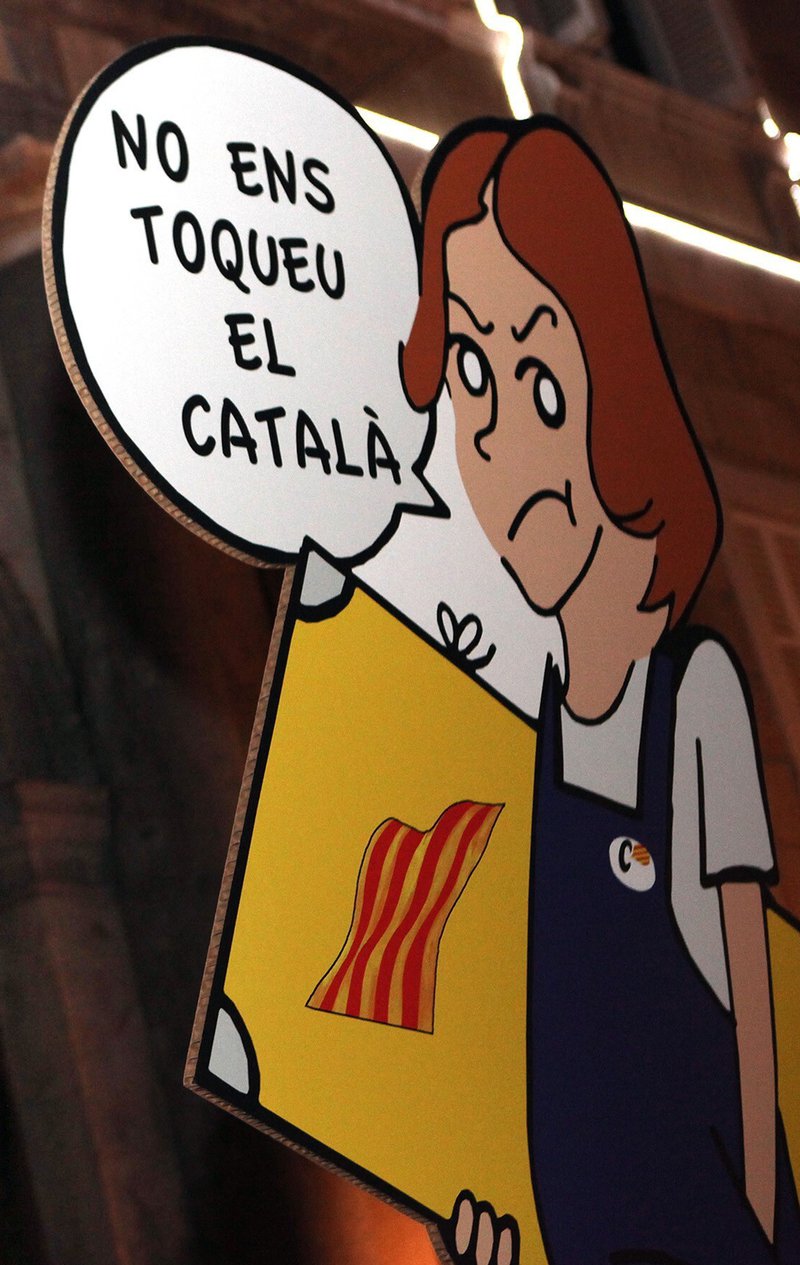THE CULTURAL TIGHTROPE
Phile or phobe?
I speak Catalan, my wife was Catalan and my son is Catalan. I have made Catalonia my home. I have lived well here, and I am grateful for that, although I feel that the relationship is a balanced one, as I have contributed to the culture in which I have lived these past 26 years, not just in the work I have done to internationalise the country in the academic sphere and through this magazine, but also through my attempts to educate those non-Catalans around me with regard to Catalan issues. The question of independence and the language issue are just two of these, even if they are the most prominent. But the fact of the matter is that there are far more Sean Scullys than Barney Griffiths in Catalonia. So I ask myself why that is.
Should you have missed it, the mention of Sean Scully is a reference to that artist’s comments in the Financial Times upon leaving Catalonia to go and live in France. “You went to meetings and they always spoke in Catalan, as if to say you’re screwed” was one of the comments attributed to him. The truth is, I come into contact with many foreigners who have elected to make their home in Catalonia, whether temporarily or permanently, and the comments I hear are often similar to those voiced by Mr Scully. Interestingly, this is a man who has received outstanding recognition for his work here in Catalonia, and yet still decided to leave. Now some may see this as ungratefulness, especially given the disparaging comments he made upon leaving, but one might also view it from a different perspective and say that if a person who has experienced success in his career because he lives here has decided to leave, that would suggest there is indeed an issue to be addressed.
So here it is: I have lived in Barcelona for sixteen years and lived in Girona for ten. I have made great friends of locals here, and feel a mutual respect with many of them. I believe much of that to be due to my own efforts to integrate, which include learning the local language. However, the level of introspection, protectionism and defensiveness here far surpass those I have encountered in other countries. They may be natural traits given the historical context of Catalonia, but they are not attractive ones and do not help when it comes to integrating foreigners, which is what any inclusive society strives for.
I believe the best way to turn non-Catalans, whether residents or visitors, into Catalanophiles rather than Catalanophobes, and therefore gain respect for the Catalan language and culture, is to open up more to other cultures. The overriding sense of protectionism experienced by foreigners, visitors, and even those who have lived and benefitted from living here, if we accept Mr Scully’s point of view, generates antagonism rather than goodwill. Despite all the good intentions of many to create an inclusive Catalonia, including the vast majority in the pro-independence movement and those individuals who contribute to this very magazine, for example, the truth is that it can sometimes feel like there is an exclusive Catalonia for those who speak Catalan – or are able and prepared to pay for the very best Catalonia has to offer – that is not available to non-Catalan speakers. In other words, the Catalan language and culture will receive greater acceptance the more outward-looking and less introspective Catalans show themselves to be with others.


